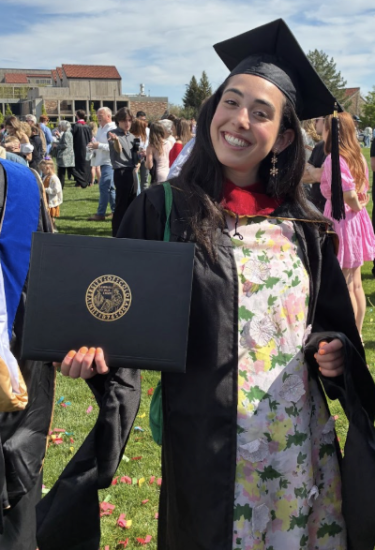Information Science
Welcome to the Department of Information Science.

Love people? Love technology? You’ll fit in perfectly.
Information science is the study of the relationships between people, places and technology and how they are intertwined. Our data-driven, interdisciplinary approach—drawing on social science, computer science and the humanities—allows students to develop the conceptual understanding and practical skills needed to succeed in a future characterized by new ways of working, communicating and creating. A degree in information science enables students to imagine what technology makes possible, invent new ways to use technology and positively impact the world.
Housed within CU Boulder’s College of Communication, Media, Design and Information, our department is proud to cultivate an inclusive community of scholars who share a commitment to excellence and innovation in research and teaching. Our research program is exceptionally strong in human-computer interaction, data science and social and collaborative computing, and our faculty expertise covers a broad range of areas including information visualization, machine learning, technology ethics, health informatics education and learning and more. Students can pursue bachelor’s, master’s and doctoral degrees, as well as minors in both information science and data science.
Undergraduate students can take advantage of our Bachelor’s Accelerated Master’s program (BAM) to seamlessly earn both a bachelor’s and a master’s degree. They have opportunities to work on real-world research projects with faculty and graduate students and can join our INFO Buffs club to find a friendly group of passionate peers with similar interests.
We welcome graduate students from a range of backgrounds, such as computer science, social science and quantitative research. Many of our graduate students participate in cutting-edge research labs and build community by joining the INFO Graduate Student Association.
The Department of Information Science is committed to exploring how the future of information, data and technology can embrace and embody principles of diversity, equity and inclusion. Our community, curriculum and research efforts are deeply informed by the DEI and inclusive excellence principles of our broader college. Our focus on seeing these goals realized in the technologies and information systems that permeate our lives is reflected in our work in this domain, including our department’s role in leading CMDI’s Center for Race, Media and Technology.
Read about our world-class faculty experts, admissions process and research labs to learn more.
INFO Graduate talks at TEDxCU: How AI is Changing the Ways We Mourn

“I shared my own story of loss to highlight how important it is that we share our stories of grief with one another and that we confront grief in our lives and not hide from it. I do not think that we should use grief bots to hide from those questions that we so desperately want to ask of that open-mouthed abyss, the where did you go, the what did you see, the what have you become, instead we should use the technology - whatever tools that we have at our disposal - to lean into those questions more fully, more openly, more honestly, more lovingly, more fearlessly. And so I'm going to leave you with another set of questions which may or may not make you uncomfortable - how might you use the technology in your life, including AI, to get closer to your humanity? How might you use the technology, the tools, AI, at your disposal to make peace with whatever abyss that you might be staring into right now whether it's death or otherwise?”
Rev. Dylan Thomas Doyle (PhDInfoSci’25) | Griefbots and the New Afterlife: How AI is Changing the Ways We Mourn
Undergraduate Opportunities
Information Science is the study of the relationships between people, places and technology and how they are intertwined. A degree in Information Science enables students to imagine what technology makes possible, invent new ways to use technology and positively impact the world. Undergraduate students can take advantage of our Bachelor’s Accelerated Master’s program (BAM) to seamlessly earn both a bachelor’s and a master’s degree. They have opportunities to work on real-world research projects with faculty and graduate students and can join our clubs and research labs to find a friendly group of passionate peers with similar interests.
Graduate Opportunities
Graduates in Information Science can pursue diverse careers such as data analyst, information architect, UX designer, systems analyst, knowledge manager, or digital librarian. The degree also provides excellent preparation for careers in cybersecurity, artificial intelligence, and information policy. With the growing importance of data in all sectors, information science professionals are in high demand across industries including technology, healthcare, finance, education, and government.
Department News
- Announcing the fall 2025 dean's list
- INFO alum, Googler joins CMDI Advisory Board, teaches new social justice course for Union Theological Seminary
- Celebrating students at our fall 2025 showcase
- INFO PhD student spends summer with LAS and SCADS Conference, work spurs $130,000 LAS grant
- All together now: 2025 at CMDI
- Data plans
- 10 for 10: Centers making an impact
- 10 for 10: Notable newsmakers
INFO & College Events
Contact the Department of Information Science
Department of Information Science:
General Inquiries: Email
CMDI Department of Information Science (INFO)
1045 18th Street, UCB 315
Boulder, CO 80309
303-735-7581

